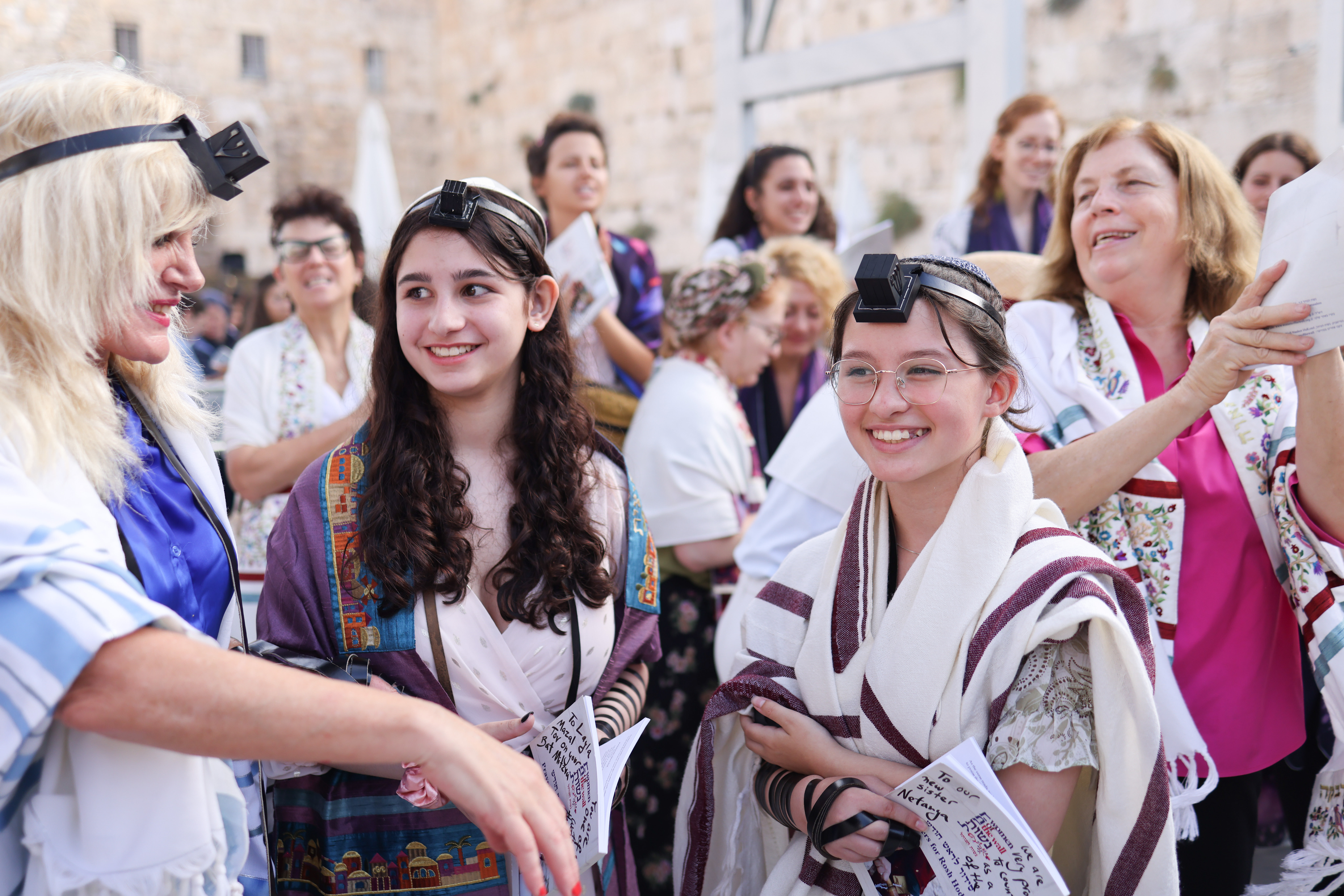Blog Post by WOW Supporter, Ben Haber
My name is Ben Haber, and this summer my daughter had the distinct honor of using her voice to lead parts of the Rosh Chodesh services with Women of the Wall at the Kotel. I recognize that in a space created by women to allow women’s voices to be heard, an op-ed piece on women’s rights in Israel by a cis-gendered male tourist might sit awkwardly with some. Allow me to affirm my deepest respect and gratitude for all that WoW has accomplished over three decades to liberate the Kotel from fundamentalist and intolerant forces.
There is a darkly hilarious irony that these yeshiva bochers, who claim to experience a Divine calling to come to the Kotel every Rosh Hodesh, pay such close attention to these women’s prayers that they lean over the barriers, listen carefully to these women’s words, and follow along with the WoW service.
Make no mistake about it, however; their behavior is sinister, violent, and degrading – in a word, biryoni. Prior to my daughter joining WoW in-person this summer (and me from the sidelines), she and I went through the footage archives. We watched Kotel guards tackle women for holding a Torah while women pluck siddur pages out of hostile hands. I questioned whether this was effective, sane, or even safe, but the more she learned, the more resolved she became to participate fully in these services.
I was forewarned about what to expect standing in the “mixed seating” area directly behind the men’s section of the Kotel. I expected the taunts and the jeers; the tugs on my tallit and the slaps on my siddur; the shouting and the whistling; the posturing, the pushing, and the instigations to punch and kick. I was comforted by the words of Dua Lipa: “Boys will be boys, but girls will be women.”
I remember vividly one man about my age bringing a young boy about my daughter’s age up to the barricade next to me and pointing specifically at my daughter who was wrapping tefillin at that moment in preparation for prayer. And the man spoke to the boy, saying: “this girl is being taught by her parents not to recognize her worth as a woman.”
It would be an understatement to say I found his remark deeply unsettling at the time, but as I’ve sat with it over these past few weeks, the horror of that remark has become more apparent: that on Rosh Hodesh Elul at the foot of the Foundation Stone in the midst of Our Holy Congregation of Israel, I witnessed two children tied and bound by the transmission, from one generation to the next, of the ideas that (1) a person has a predefined worth, (2) that one’s worth is based exclusively on one’s sexual phenotype, and (3) that one’s sexual phenotype determines one’s educational opportunities, spiritual fulfillment activities, and possible life paths. While Mishna Sanhedrin clearly delineates the legal conditions of blasphemy, one reading of the Midrash Tanchuma teaches another definition of blasphemy as the deliberate weaponization of our most holy concept in order to cause unjust and irreparable harm to another human being (Midrash Tanchuma Emor 24:1, Midrash Tanchuma Shemot 9:3).
That these appalling ideas are normalized and presented as the only acceptable standard of behavior, and that they are used to assault, abuse, manipulate, waive, invalidate, disenfranchise, dispossess, extinguish, and cut short the rights, practices, and life paths of other human beings – all in the Holy Ineffable Name of Our G-d and the G-d of Our Ancestors – is a blight on our Community and is no less than blasphemy as we understand it in the midrash. Full stop.
I am fortunate that my daughter thinks critically, uses her voice to improve herself and those around her, and cuts at the ropes of such abhorrent distortions of our Holy Torah. Tragically, I can’t say whether this little boy’s life will be sacrificed to the ideas that polluted his mind that day. B’ezrat haShem, he will escape too and soon, before he is consumed by this molochian practice and comes to perpetuate it himself. As for the boy’s teacher, let us hear the voice of our teacher Beruriah (Bavli Talmud Berakhot 10a), who boldly spoke the words of the Psalmist (Tehillim 104:35), and pray that it may be G-d’s will that sins cease from the Land.

